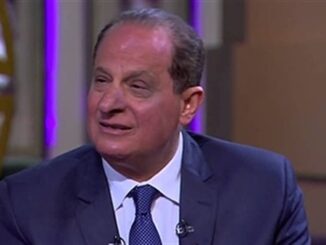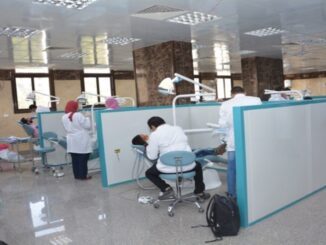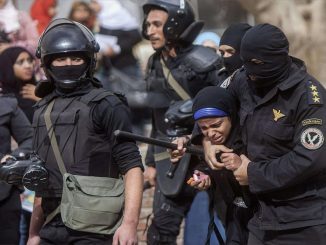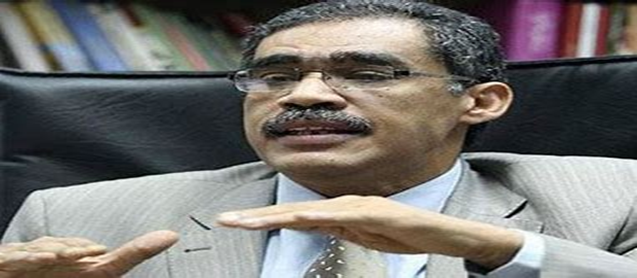
Although the April 6 Youth Movement received an invitation to Egypt’s national dialogue, others are facing exclusion for criticizing the regime
According to Diaa Rashwan, head of the Journalists Syndicate and the newly named coordinator of the national dialogue, the April 6 Youth Movement, a leading group in Egypt’s 2011 revolution, will participate in the July dialogue
The dialogue continues to divide opinion, but Ahmed Maher, one of the April 6 Youth Movement’s co-founders, argued that after the eventual failure of the revolution, it is time to try dialogue instead. However, other co-founders, including Ahmed Douma and Mohamed Adel, remain in prison.
One person who will seemingly not be participating in the dialogue is National Council for Human Rights member and Reform and Development Party head Mohamed Anwar al-Sadat.
Al-Sadat said that he and others have been banned from the dialogue and from appearing in the media over their criticism of some aspects of the dialogue, including the leading role played by security services. He described their exclusion as an “unencouraging and unsuccessful start” to the dialogue.
Opposition forces and political parties continue to push for the release of political prisoners ahead of the dialogue as a sign of the regime’s seriousness about reform.
The Civil Democratic Movement, an opposition coalition comprising seven political parties, released a statement on Friday rejecting the unilateral manner in which Rashwan’s appointment was made, but accepted the appointment itself in a subsequent statement on the understanding that “consultations with the party calling for the dialogue” over their preferred choice to assume the position of secretary-general are still ongoing.
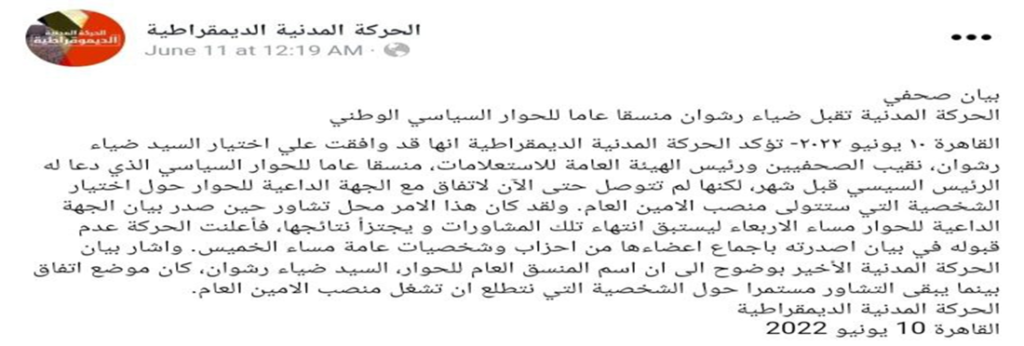
According to the Civil Democratic Movement co-founder and political science professor at Cairo University Moustafa Kamel al-Sayed, “the movement suggested that [doctor and activist] Mohamed Ghoneim should be secretary-general, to be assisted by the board of trustees, but we left it up to the authorities to name the general coordinator. The technical secretariat’s role is purely technical, not related to setting the agenda, choosing the participants in the dialogue, nor setting the rules for organizing the dialogue.”
Commenting on the appointment of Rashwan without consultation, Dr. Moustafa Kamel al-Sayed said, “The academy issued its statement without consulting the civil movement, conveying a unilateral will and selectivity with the facts. This unilateral approach aborts the idea of dialogue as well as the chance that the guarantees the movement called for will be fulfilled, foremost of which is the release of not only well-known political activists, but any political prisoners who have not committed acts of violence,” he said.
Dr. Al-Sayed that the movement adheres to its May 8 statement, which said that its “participation in the dialogue with the authorities depends on a number of procedural and objective parameters that would make the dialogue a chance to save the nation and solve its problems, rather than just cosmetic”.
Brotherhood excluded
Also, the opposition political forces outside Egypt, including Muslim Brotherhood, are excluded from invitation to the national dialogue.
Commenting on the possibility for a dialogue with the Egyptian government a few days following Sisi’s call, prominent Muslim Brotherhood leader and the group’s former international political foreign emissary Youssef Nada said in a statement relayed by media outlets in early May that the Brotherhood was ready to turn the page on the past after “repaying the injustices.”
Although Nada said that the Brotherhood was open to dialogue with the Egyptian regime, however, all indications refer to exclusion of the largest political force from participation in the so-called national dialogue.

In his statement Nada said “the door of the Muslim Brotherhood group is open for dialogue with the regime in Egypt… We are ready for the possibility of dialogue with the Egyptian presidency and to forgive injustice without pre-conditions.”
Egyptian political science professor Khairy Omar told Anadolu Agency that the country’s political and legal civilian current would attend such dialogue, who consider it a chance to express their opinions.
He also said all forces and groups that support the Egyptian regime would attend dialogue, including the Islamist Salafist current, which already acknowledges the legitimacy of the Egyptian ruling regime.
Omar excluded the idea that such a call for dialogue is a result of external pressure on Egypt. “The [Egyptian] authorities realize the requirements of the current phase, which are linked to the importance of conducting a political dialogue,” he said.
He also excluded the possibility of participation of opposition figures outside Egypt, including the Muslim Brotherhood.

